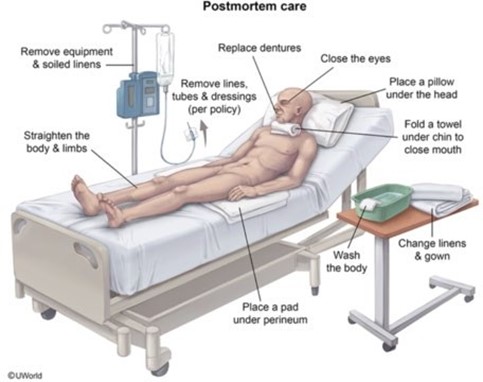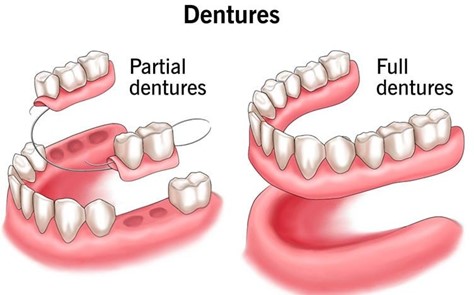A nurse is assigning care to an assistive personnel (AP). Which of the following tasks should the nurse delegate to the AP?
Educating a client on the use of a blood glucose monitor.
Interpreting a client's vital signs.
Performing a central line dressing change for a client.
Providing postmortem care for a client who has died.
The Correct Answer is D
Assistive personnel (AP), also known as unlicensed assistive personnel (UAP), can perform tasks such as assisting with activities of daily living, hygiene, and nutrition, as well as those tasks that support professional nursing assessments ². Providing postmortem care for a client who has died [d] is a task that can be delegated to an AP.
The other options are not tasks that should be delegated to an AP. Educating a client on the use of a blood glucose monitor [a] involves patient education, which is typically the responsibility of a licensed nurse.
Interpreting a client's vital signs [b] involves assessing the client's health status, which is also typically the responsibility of a licensed nurse. Performing a central line dressing change for a client [c] is a complex task that requires specialized knowledge and skills.

Nursing Test Bank
Naxlex Comprehensive Predictor Exams
Related Questions
Correct Answer is C
Explanation
An incident report should be filed whenever an unexpected event occurs. The rule of thumb is that any time a patient makes a complaint, a medication error occurs, a medical device malfunctions, or anyone— patient, staff member, or visitor—is injured or involved in a situation with the potential for injury, an incident report is required ⁴. In this case, the client's missing dentures would be considered a complaint and would require the nurse to complete an incident report.
The other options do not require an incident report. Disagreeing with the nurse manager about inadequate staffing [a], a staff member not arriving at the facility to work an assigned shift [b], and discovering that the client does not have advanced directives [d] are not situations that would require an incident report according to the information provided in my sources.

Correct Answer is B
Explanation
A nurse's best protection against negligence or malpractice is to follow the standards of practice. These standards define the acceptable level of care that a nurse is expected to provide and are based on current evidence and professional consensus. By adhering to these standards, a nurse can demonstrate that they have provided care that meets the expected level of quality and safety.
The other options are not the best protection against negligence or malpractice. Asking permission from the managing nurse prior to performing any duties [a] may be helpful in some situations, but it is not a guarantee against negligence or malpractice. Never being alone with a patient [c] is not practical or necessary for providing safe and effective care. Recording patient interactions with your phone [d] may violate patient privacy and is not an effective way to prevent negligence or malpractice.
Whether you are a student looking to ace your exams or a practicing nurse seeking to enhance your expertise , our nursing education contents will empower you with the confidence and competence to make a difference in the lives of patients and become a respected leader in the healthcare field.
Visit Naxlex, invest in your future and unlock endless possibilities with our unparalleled nursing education contents today
Report Wrong Answer on the Current Question
Do you disagree with the answer? If yes, what is your expected answer? Explain.
Kindly be descriptive with the issue you are facing.
